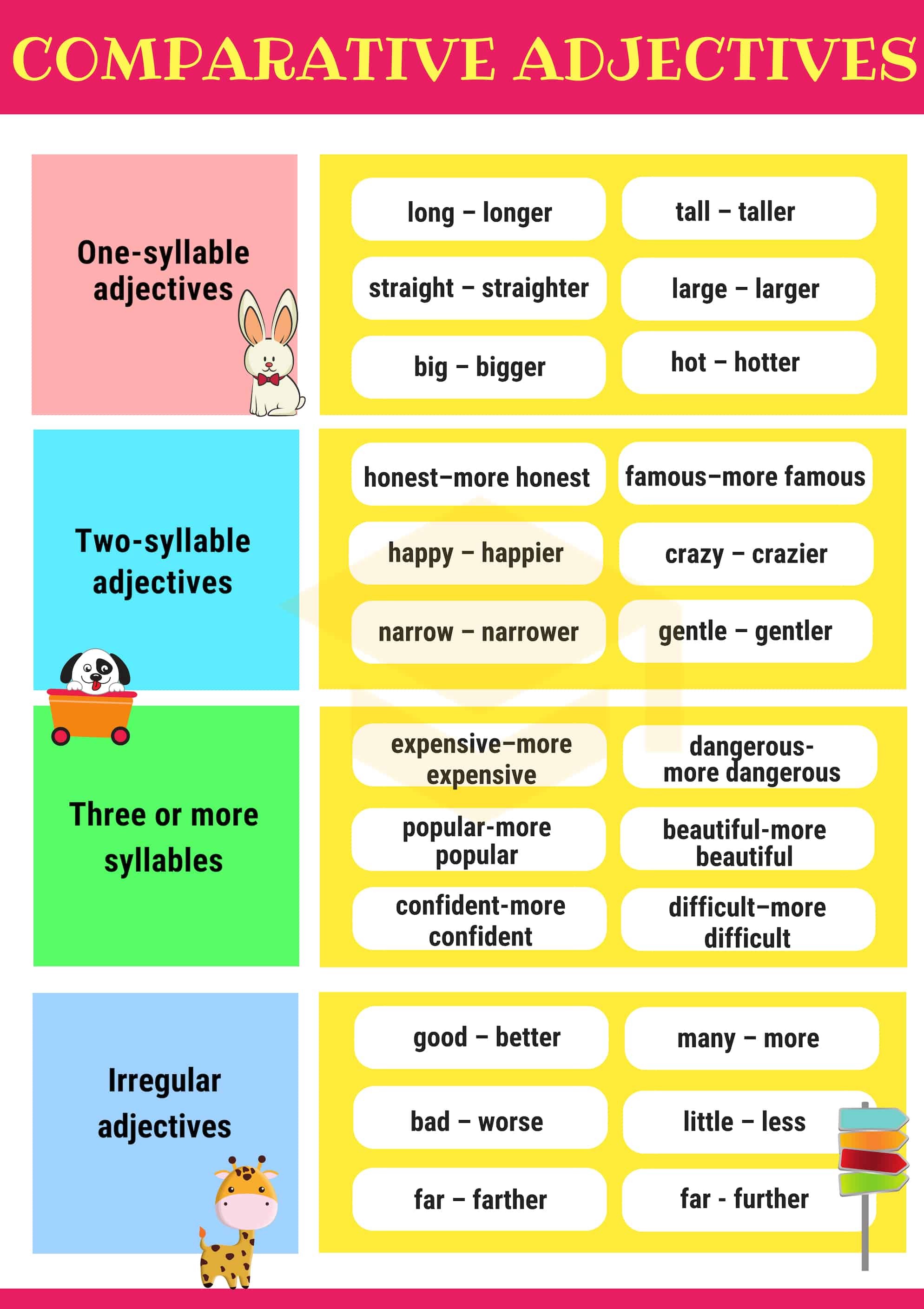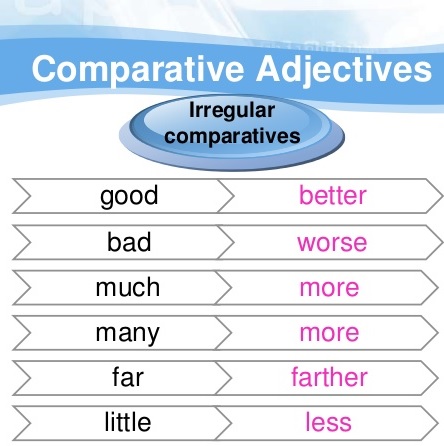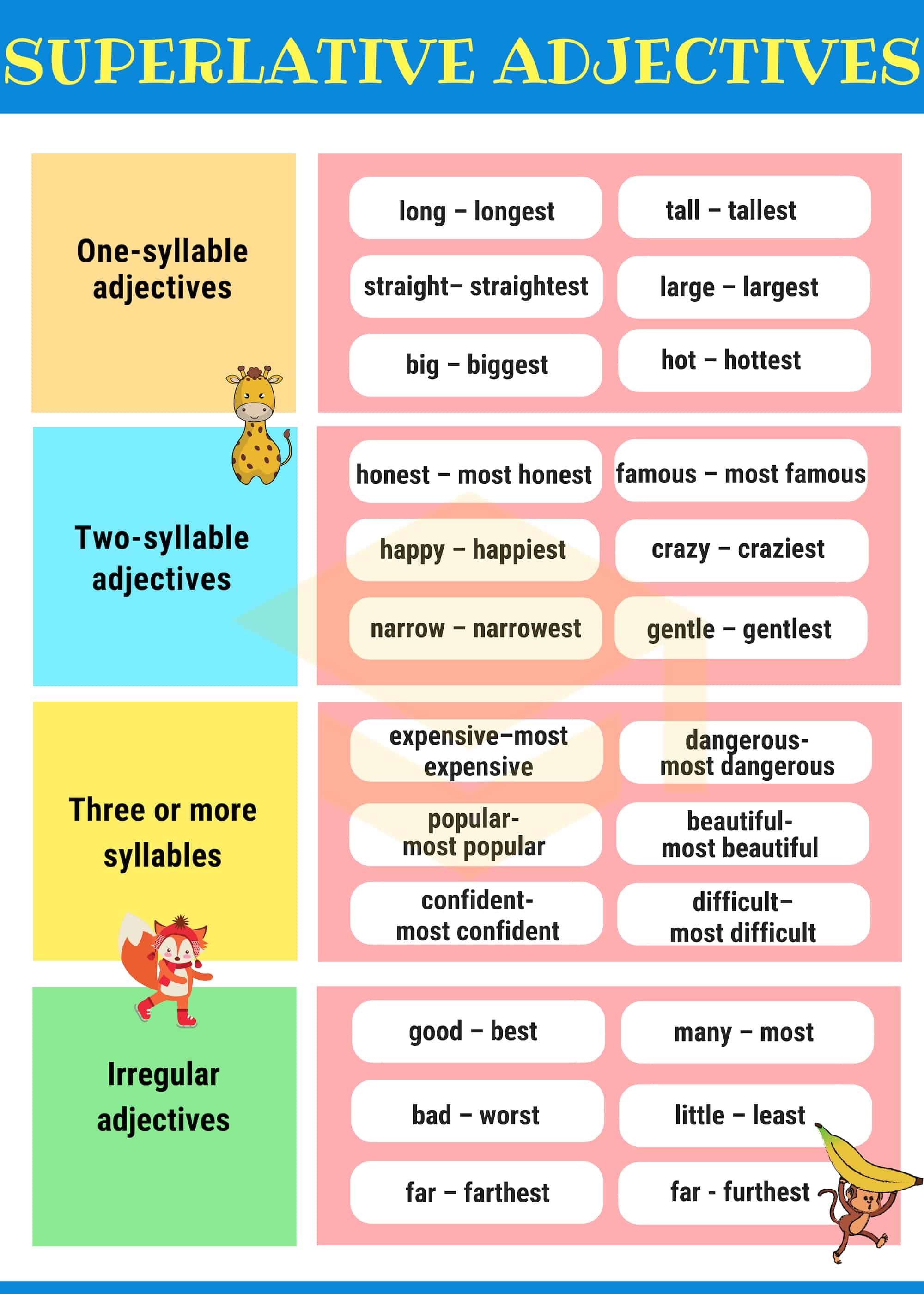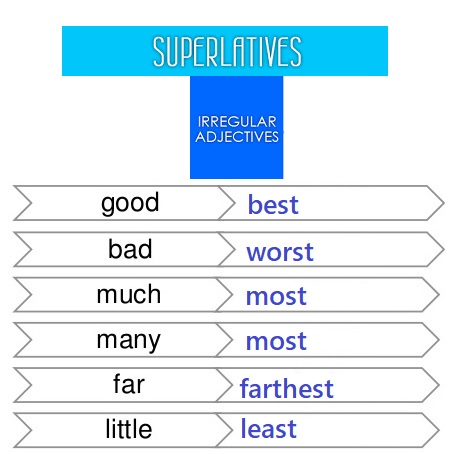Unit 5
| Sitio: | Aula Abierta - Facultad de Ingeniería |
| Curse: | CURSADO Inglés II / A2 / Coloquial I - 2024 PROF. LILIA DIEGUEZ |
| Libro: | Unit 5 |
| Impreso por: | Invitado |
| Fecha: | domingo, 1 de febrero de 2026, 04:38 |
Descripción
This unit deals with the comparative and superlative forms of adjectives, the comparative form of adverbs, quantifiers, time expressions, and vocabulary to describe places and related to health and body issues.
1. GRAMMAR
Welcome to the grammar section, which is divided into three different parts:
PART 1- Comparative form of adjectives and adverbs
PART 2- Superlative form of adjectives
PART 3- Quantifiers
Please continue to the different subsections...
1.1. PART 1- Comparative form of adjectives and adverbs
When we compare 2 items (people, things, animals, etc), we use the comparative forms of adjectives. Watch this short video to learn more:
Now, let's study the spelling rules of comparative adjectives:

And now, let's focus on the most frequent irregular adjectives and their comparative forms:

In addition, we can compare 2 items using the structure as - adjective - as. Check this out here:
It's also possible to compare 2 items using the structure less than. Find out how here:
And what about adverbs? Do you know why we use them? Let's watch this video to better understand their definition, uses and to focus on examples:
Now, let's learn how to compare adverbs here.
Finally, let's practise!

1.2. PART 2- Superlative form of adjectives
PART 2- Superlative form of adjectives
When we compare more than 2 items (people, things, animals, etc), we use the superlative forms of adjectives. Watch this short video to learn more:
Now, let's study the spelling rules of superlative adjectives:

And now, let's focus on the most frequent irregular adjectives and their superlative forms:

Ready to practise? Here we go!

1.3. PART 3- Quantifiers
PART 3- Quantifiers
Please, analyze these questions:
I How many cups of coffee do you drink a day?
2 Do you spend much time in the sun?
3 Do you eat a lot of chocolate?
4 Did you know that drinking a little red wine can be good for you?
5 Is it true that you have a few computer games?
6 Do your friends read a lot?
Now, focus on the quantifiers in the questions above: a little, a few, much, many, a lot and a lof of. Do you remember how to use them? Let's refresh these concepts here:
Additionally, we can use the words TOO and ENOUGH to express quantity. Let's learn how to do it here:
Are you ready to practise? Here we go!

2. READING
Is it possible to be a better student if you wake up at a certain moment of the day?
Let's find this out and practise some reading here!
3. LISTENING
Can chocolate and watching TV be good for you? Are you sure about your answer? Listen and find out here.
4. VOCABULARY
In this section we are going to focus on words related to health and body here. Additionally, we will study how to describe places in detail.
PART 1: HEALTH AND BODY
In our oral sessions, we used some words related to health and body. You can check the class presentation to have a look at this topic. When you are ready, click here and start working.
Have you ever had a health problem in any place that you visited? Do you know any person who suffered an accident during a trip? Is it possible to have a health problem because you don't know an area in detail? Why (not)? Let's discuss these ideas here.
PART 2: DESCRIPTION OF PLACES
Now, let's focus on the second vocabulary domain we need to work on: the description of places.
When we describe a town or city, we need to bear these questions in mind:
• Is it a village, a town, or a city?
• Where is it?
• How big is it?
• What's the population?
• What's it like?
Now, let's work on here and here.
5. THE END
You have successfully completed the tasks for this unit.